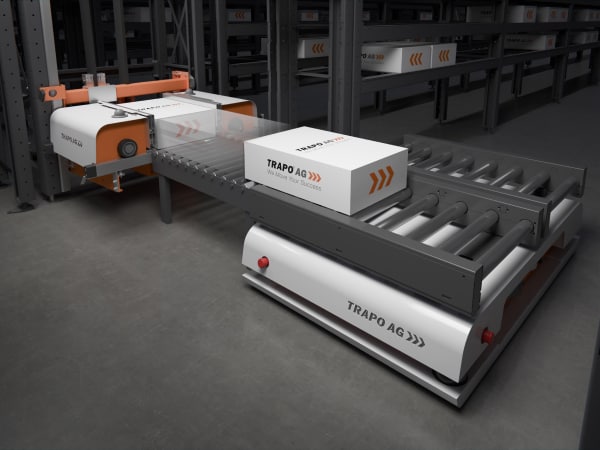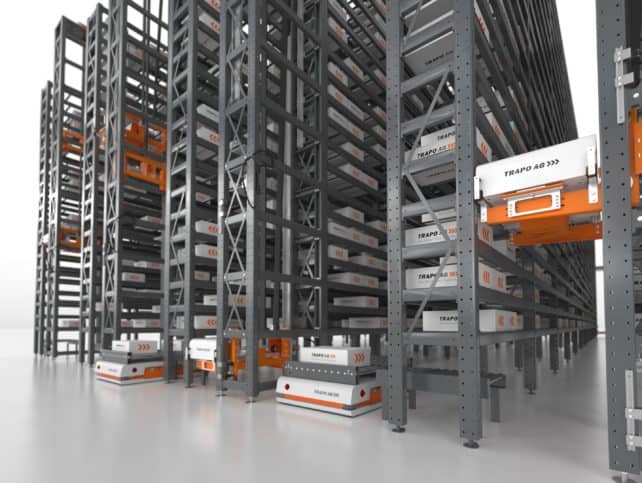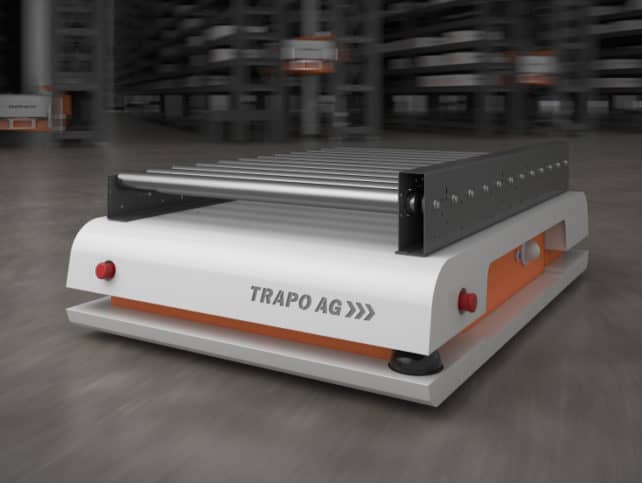Optimized warehousing through flexible transport systems
With the increase in the degree of automation, the importance of flexible load carriers is growing. Logistics companies and warehousing operators are using autonomously functioning, in-plant transport systems that independently organize their route and fill shelf spaces.
The TRAPO Transport Shuttle (TTS), the TRAPO Warehouse Lift (TWL) and the TRAPO Warehouse Shuttle (TWS) act together as a trio and can be used in combination. As a flexible transfer unit, the TTS takes over internal goods transports – and transfers to the TWL and the TWS in the area of the high-bay warehouse.
With this portfolio, TRAPO answers any requirements with flexible, economical systems. Via TIM, the TRAPO Intelligent Managementsystem, the vehicles can coordinate who takes which job and which is the shortest route for loading.
Temperature-controlled warehouses for food and pharmaceutical industries
Warehouse and material flow planning for companies in the food industry or pharmaceutical industry requires compliance with additional requirements and legal regulations. In their planning, TRAPO’s expert teams take into account requirements of the products to be stored in terms of darkness, temperature and storage conditions.
In order to find sustainable solutions, mobile shuttles are also used there, which make optimum use of the available space, avoid multiple trips and make optimum use of storage space.
Advantages
- Use of the shuttles in combination
- Automation of internal goods transports
- Modular system
- Multiple feeders
- Different designs, payloads and speeds
- Everything from a single source: no interfaces, one mechanical structure, one control system
- Modular design
- Control via TIM
- optimized warehousing
Technical details
- TWS 35 (for use in high-bay warehouses)
- TWS 1200
- TWL
Performance:
In standard payload of 35kg / pallets up to 1200kg; higher loads on request.
Dead weight:
- TWS 35: 200kg
- TWS 1200: 800kg
Dimensions:
(TWS 35): 1200×635 (with 400×600 container)
- Energy storage: power supply via busbar
- alternatively battery powered
- Lithium-ion battery
Charging:
- On the TWL
- Via charging point in the alley
Driving speed:
3m/s
Modularly expandable to increase capacity
Overcoming levels with the aid of the TWL
From a single source: no interfaces, one mechanical structure, one control system


